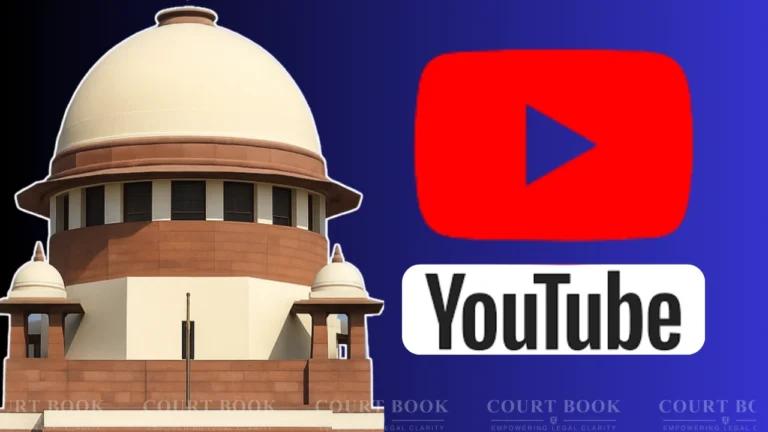The Supreme Court of India recently made strong observations while hearing the anticipatory bail plea of journalist Nandakumar T.P., who runs the YouTube channel "Crime Online". The journalist is accused of publishing a video containing derogatory and obscene remarks against a prominent woman politician from Kerala.
During the hearing, Justice B.V. Nagarathna, sitting with Justice K.V. Viswanathan, expressed concern over the increasing misuse of platforms like YouTube.
“What public discussion? Courts are there to convict or acquit. YouTube presentations cannot substitute a court of law,” said Justice Nagarathna while rejecting the claim that the video was aimed at promoting public debate.
The petitioner’s counsel argued that the video only referred to statements made by a former Chief Minister in 2011 and did not originate any new allegations. In response, the bench retorted:
“You want to convict people based on your YouTube presentations? Conviction or acquittal doesn’t happen based on a YouTube video. Courts do that.”
Justice Nagarathna further questioned the motive behind uploading such content:
“What is YouTube being used for! Say some nice things on YouTube. Why do you put this 'crime online' etc? Something nice happening in Kerala, God's own country, speak about that.”
She also highlighted the damaging nature of negative content online and remarked:
“Write something nice. Nobody will watch? If negative things are spoken, bad things are spoken, it attracts attention.”
Read also:- BNSS Mandates Prior Notice to Accused Before Cognizance: Delhi High Court Reinforces New Safeguard
When the petitioner’s lawyer claimed the video was part of a campaign against corruption, the Court was unimpressed.
“This is not the way to fight against corruption,” Justice Nagarathna replied.
Case Background
Nandakumar T.P. is facing prosecution for allegedly posting a video containing sexually coloured, insulting, and threatening content aimed at a woman political leader. The FIR against him includes the following charges:
- Section 75(1)(iv) – Insulting the modesty of a woman
- Section 79 – Intimidation and intent to cause reputational harm
- Section 351(1)(2) – Disseminating obscene content electronically
- Section 67 of the IT Act, 2000 – Publishing or transmitting obscene material online
Earlier, the Kerala High Court, in its June 9, 2025 order, had denied anticipatory bail and directed Nandakumar to surrender before police. Challenging this, he moved the Supreme Court.
Read also:- Bombay HC Rules: Spouse’s Taunts Over Skin Tone, Cooking Skills Don’t Amount to Abetment of Suicide
On June 18, 2025, a vacation bench granted interim protection from arrest, stating that if arrested, the journalist would be released on bail upon fulfilling conditions set by the trial court. The matter was adjourned by three weeks after the State of Kerala sought time to file a counter affidavit.
This case has once again highlighted the concern of the judiciary over the unregulated use of digital platforms. The Supreme Court’s strong message—“YouTube cannot substitute a courtroom”—is a reminder that legal proceedings must take place within the framework of the Constitution and established judicial procedures, not through social media trials.















